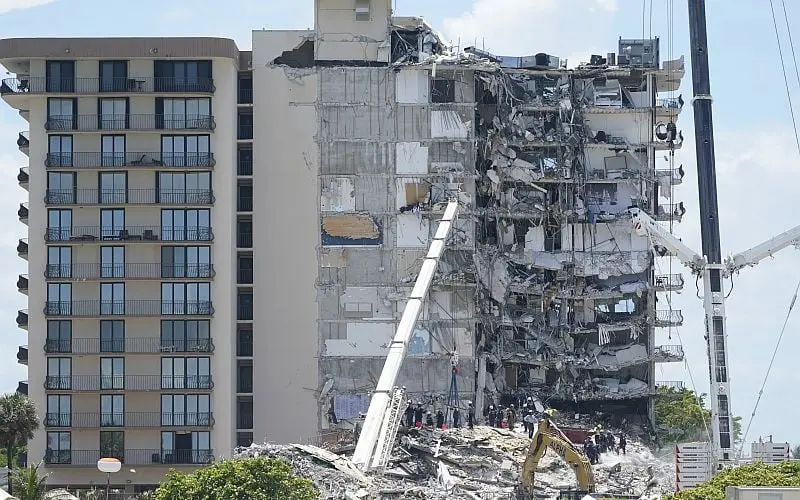
Photo Credit: Associated Press
HOA Detective™ – Jan 10, 2025: Homeowners Associations (HOAs) and property owners across the United States are confronting a significant crisis due to rapidly escalating property insurance costs. This surge is largely attributed to increased losses from natural disasters such as storms, wildfires, and floods over the past decade. The 2021 collapse of the Champlain Towers South in Surfside, Florida, has further intensified concerns about property safety and insurance liabilities.
Impact of Natural Disasters on Insurance Costs
The frequency and severity of natural disasters have led to substantial financial losses for insurers, prompting them to raise premiums or withdraw from high-risk markets. For instance, recent wildfires in Los Angeles have caused over $10 billion in damages (and counting), testing California’s insurance system and leading to higher premiums.
https://www.vox.com/climate/394176/los-angeles-fires-palisade-insurance-climate-crisis
Similarly, in Florida, property insurance premiums have surged, with some areas experiencing increases up to 68%, causing homeowners to rely on more expensive and limited coverage options like the state’s FAIR Plan.
https://time.com/7205849/los-angeles-fires-insurance
Challenges for HOAs and Property Owners
HOAs, particularly those managing condominiums and Planned Unit Developments (PUDs), are experiencing significant financial strain due to these rising insurance costs. A survey by the Foundation for Community Association Research indicates that 91% of community associations have faced insurance premium increases, leading many to raise annual dues or levy special assessments to cover the additional expenses.
https://hoaresources.caionline.org/condos-and-hoas-confront-rising-insurance-premiums/
This situation is exacerbated by the need for costly structural inspections and repairs, especially in the wake of incidents like the Champlain Towers collapse, which highlighted the potential risks of deferred maintenance.
Broader Implications
The escalating insurance costs are not confined to HOAs, but also affect individual property owners, particularly in disaster-prone areas. Nationwide, home insurance premiums have risen by 23% over the past year, outpacing the general inflation rate.
https://www.wikiwand.com/en/articles/Climate_change_and_insurance_in_the_United_States
This trend has led to concerns about housing affordability and the potential for properties to become uninsurable, especially as insurers reassess their risk models considering climate change.
Two All-Important Questions
Is your HOA, or the one you plan to invest in, adequately insurance?
Is your HOA, or the one you plan to invest in, adequately PREPARED to file a claim if a major loss occurs?
Conclusion
Increased natural disasters and heightened awareness of structural risks have created a challenging environment for HOAs and property owners. Addressing this crisis will require coordinated efforts among policymakers, insurers, and property owners to develop sustainable solutions that balance risk management with affordability.
Property ownership groups such as condominiums, which must collectively insure a building for the benefit of all stakeholders, will increasingly be required to provide supporting documentation to support the losses under a submitted claim.
Independent replacement cost appraisals are likely to be required in certain situations such as coastal zones prone to flooding, hurricanes, and damage from high winds. Such steps must be taken BEFORE disaster strikes, not after.
Because You’re Buying More Than a Home!







